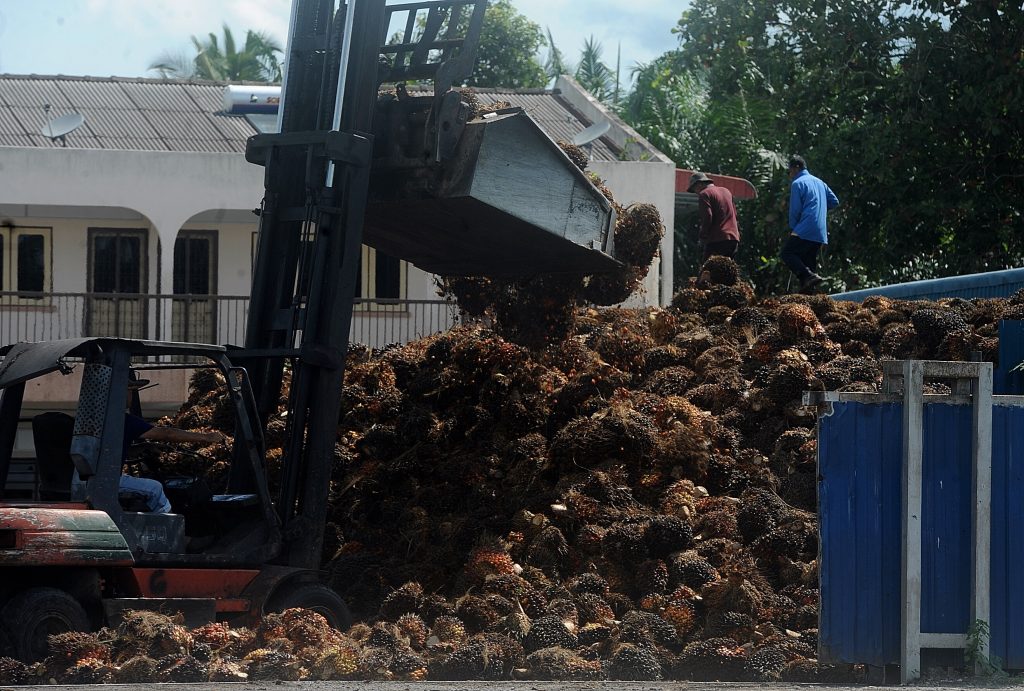The Plantation Industries and Commodities Ministry (MPIC) and the Finance Ministry are currently in talks to reduce Malaysia’s palm oil export tax from 8% to between 4% and 6%.
The two ministries are also aiming to reduce the country’s biodiesel mandate to meet the global edible oil shortage.
According to MPIC Minister Datuk Zuraida Kamaruddin, a decision is pending and Malaysians are expected to be the top in global palm oil exports.
However, she urged industry players to focus on market variables that are likely to cause price volatility which are the export policy of Indonesia, the recovery of palm oil production in Malaysia, the adjustment of biodiesel policies in various countries, progress of the Russia-Ukraine conflict and the weather in both the US and South America.
“The fact that palm oil stockpile increased for the first time since October 2021 by 11.5% month-on-month to 1.64 million tonnes in April 2022 driven by higher output (+3.6% to 1.46 million tonnes) and weaker exports (-17.7% to 1.06 million tonnes) should not be a cause for concern.
“This is because palm oil stockpile will likely dip in May 2022 on the back of seasonally lower crude palm oil (CPO) production (arising from the Ramadhan month) and stronger exports (following Indonesia’s recent move to widen its export ban on raw materials for cooking oil),” the minister said in a statement today.
With the announcement of Indonesia’s decision to ban palm oil exports from April 28, CPO prices have soared above RM7,000 per tonne mark to RM7,516 per tonne.
However, Indonesia decided to lift its palm oil export ban from May 23 (Monday) after its domestic cooking oil supply situation has improved but decided to only lift it when bulk cooking oil price comes down to 14,000 rupiah (RM4.20) per litre across Indonesia.
Since the ban has seriously damaged Indonesia’s economy, Zuraida assured that the government has rescinded the decision to ban its palm oil exports.
“Meanwhile, exports were dragged by lower exports to China (50.8%), European Union (23.2%) and Pakistan (90.3%) due to several factors including strict Covid-19 lockdowns which hampered palm oil shipments to China and demand destruction as a result of high prices.
“Nevertheless, preliminary data from AmSpec Agriculture Malaysia indicated that palm oil shipments alone have surged by 40.32% during the first ten days of May on account of Indonesia’s absence from the global export market, a weak ringgit and widening palm discounts to bean oil.
“The ministry expects global edible oil demand is not as weak as we think, although the April process may be lower compared to the previous month but still remain at unprecedented levels,” she added.
On a year-to-date, CPO prices have risen above expectations to RM6,300 per tonne from RM4,300 per tonne which was projected by market analysts for 2022.
Zuraida forecasted that CPO prices are likely to consolidate due to the ending uptrend in monthly fresh fruit bunches production rather than poor demand, but would stay elevated from the tight supply, robust market, uptake from China and the oil price hike arising from the Ukraine-Russia conflict.
“The ministry will continue to ensure the palm oil industry, which is the country’s main commodity, continues to contribute to national economic growth, thus benefiting all, especially smallholders and industry players,” she said.
Source : The Malaysian Reserve
May 30, 2022













